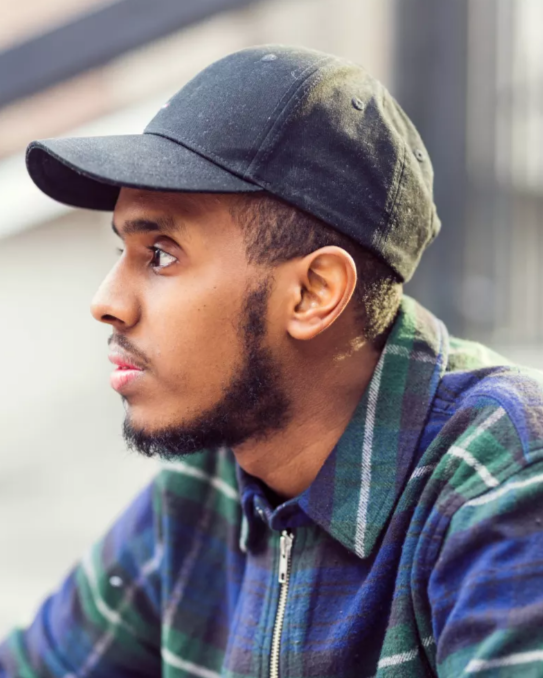Yasin Osman told BuzzFeed News: “What I’m trying to do is I’m trying to capture Somalis as they are, which is happy, smiling, beautiful.”
Yasin Osman is a 25-year-old award-winning photographer from Toronto.
Last year, he joined the Love Army for Somalia aid campaign and photographed people for his upcoming exhibition titled Dear Ayeeyo, meaning “dear grandmother”.
We spoke to him about his time in Somalia and about some of the photos from the exhibition.
He told BuzzFeed News the project is dedicated to his late grandmother. “The reason I called it Dear Ayeeyo is literally just in tribute to my grandmother, me showing her the Somalia she hadn’t seen for 30 years plus… [it’s] like a tribute to her.”
Osman said that after 15 years of not having seen his grandmother, who lived in Leicester in the UK, he got the opportunity to visit her when he got time off from his job as an early-childhood educator because he broke his wrist.
He said: “I really love my grandmother and we’d always have conversations, we’d always talk on the phone. We were, like, really cool.”
Osman said it was his mum who suggested he should finally make the trip to see his grandmother.
“So I went and visited her and I ended up spending two weeks with her. During those two weeks, I remember telling her I wanted to quit my job and become a photographer.
“What she said to me was ‘I will make dua for you,’ like ‘I’ll pray for you, that you become successful in what you do as long as you do something like this guy.’ She pointed at a journalist on TV that was doing stuff in Somalia.
“She said ‘As long as you do something to give back to Somalia, then I will make dua for you.’
“I looked at her and at the time I was like, man, I don’t think I’m going go to Somalia but you know what – I’m going to do my best. So I said, ‘I promise that I’ll do that.’
“She ended up passing away a week and a half later, and then I couldn’t stay in Leicester.”
That’s when he decided to go back to Toronto and quit his job.

Osman said he had no idea what his next steps would be, but then he came across the “Love Army for Somalia” GoFundMe campaign, which was set up to tackle the effects of the country’s drought.
“I was looking, I was thinking like, ‘How could I get involved in this? I feel like my skills as a photographer, especially being Somali, could benefit their campaign.’”
He sent his work to Jérôme Jarre, the humanitarian and social media celebrity: “I told him I had a cool idea. I told him I run this programme called ‘Shoot for Peace’ and I teach photography.
“Wouldn’t it be cool if we did the same thing in Somalia in the camps, that these kids are receiving food and water and all that? I said this could be something different that a lot of humanitarian organisations don’t do.”
He said Jarre called it “an incredible idea” and the following week he was on a flight heading to Somalia.
Osman said: “I was shocked and we’re kinda, like, searching up different Polaroid cameras that we could take for the kids.”
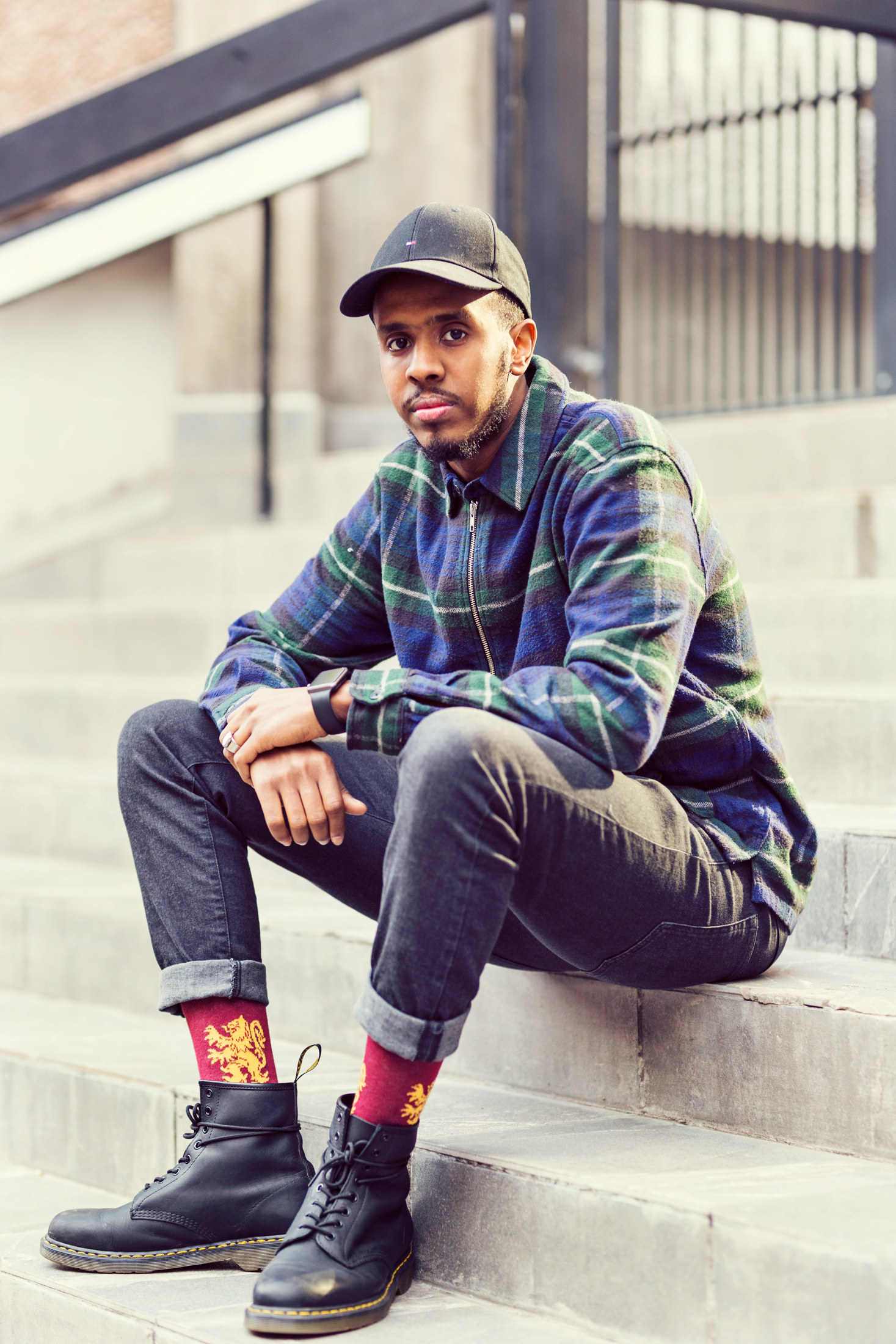
“We had conversations about how can we do this in the best way – we thought that them seeing the photo that they took would be the best experience, so we did that.”
For Osman, the journey to Somalia had a poignant side.
“Before I left,” he said, “going on the plane was such an emotional plane ride for me because of the reason that I kept thinking about how happy my grandmother would’ve been if I had fulfilled her promise, you know.
“I was literally on that plane ride thinking like, Wow, like, this is only happening because she made dua for me, she prayed for me, and this is why I’m going there.”
He said: “I think the best way that I was able to support was through photography and just being really vulnerable and very honest with them and allowing them to really share their story, and I was taking stories, I was asking questions.”
Osman said he didn’t start taking photos of people from the get-go, and instead focused on connecting with everyone in the village.
“I made, like, a very honest relationship with… I think there were, like, 2,000 people in this specific village that we were at and every single person knew me.
“It was because I was completely vulnerable with them, that’s why. When you’re vulnerable with someone it allows them to be vulnerable with you as well. I was talking to them about my home family background and my home family situation.”
Osman said that during his time in Somalia he had noticed a lot of photographers trying to capture poverty, sadness, and bad vibes.
He said: “What I’m trying to do is I’m trying to capture Somalis as they are, which is happy, smiling, beautiful… That’s what I wanted to capture in my images and that’s what you’re going to see in the images.”
One of the people he formed a relationship with was a woman he called “Ayeeyo”. Osman said that the photo of her is one of his favourites and bears a striking resemblance to his late grandmother.
He said: “This was the first elderly person I had met when I went there and even my mom said this woman like deeply resembles my grandmother, and when I look at her I honestly forget that it’s not.
“Like, this is almost exactly how my own grandmother looks.”
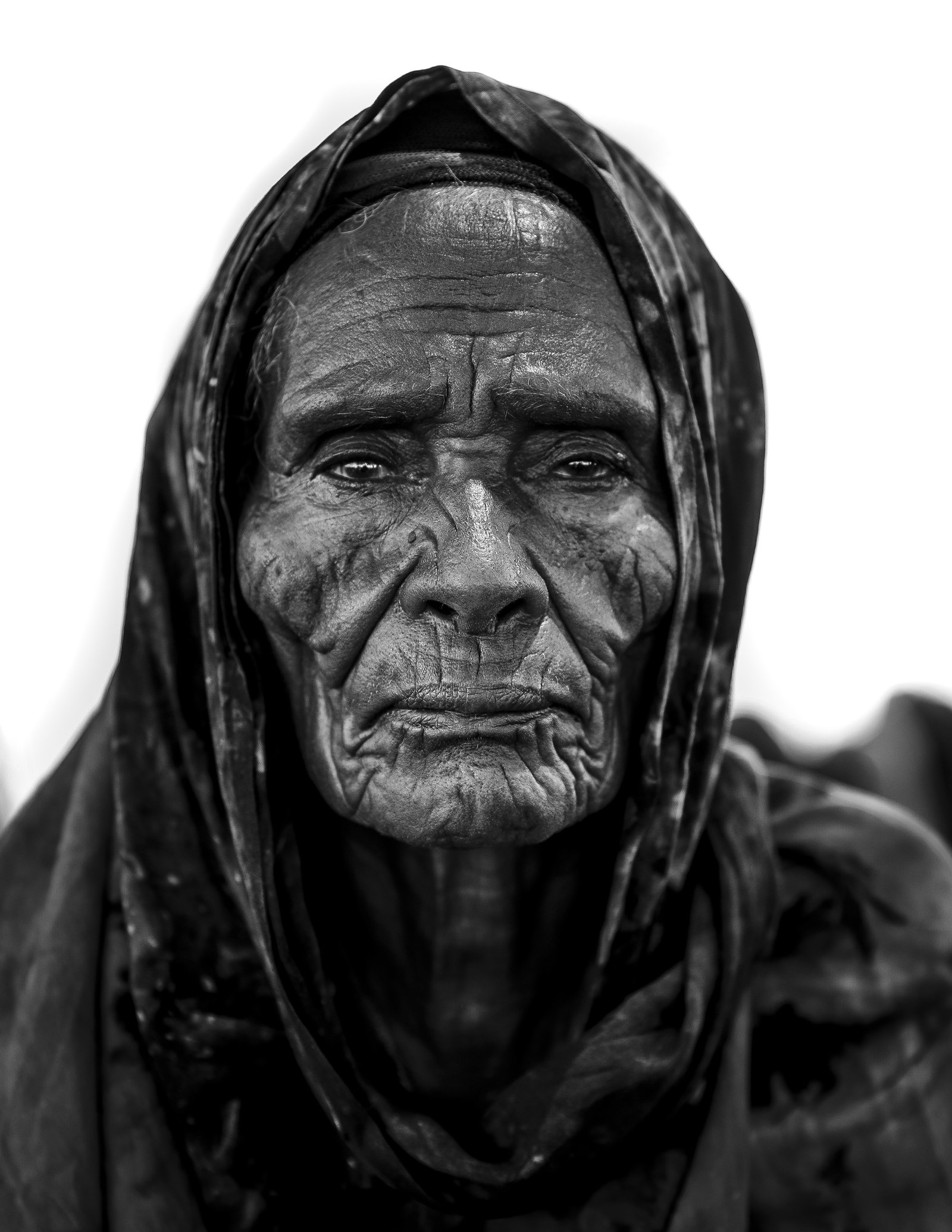
Osman said he got chatting with her. “What’s really interesting is that the first time that I met her, she was telling me about her situation and the struggles, what was going on with her, family.
“I think the most powerful thing that she said to me, when I said to her that I will help – I said, ‘I will support in any way that I can, in terms of getting the team to support you, how to support you, in terms of getting you health, food, and all of that’ – she said, ‘That’s not important.’
“She looked at me and said, ‘The most important thing is that you don’t forget me.’
“I was really taken aback, I was so shocked, and I was like, ‘Yes, of course I will never forget you.’ I’ll never forget her face. She said it twice: ‘Don’t forget me, don’t forget me.’”
This next photo is of Ayan. Osman said the first time he met her, her face was really striking to him.
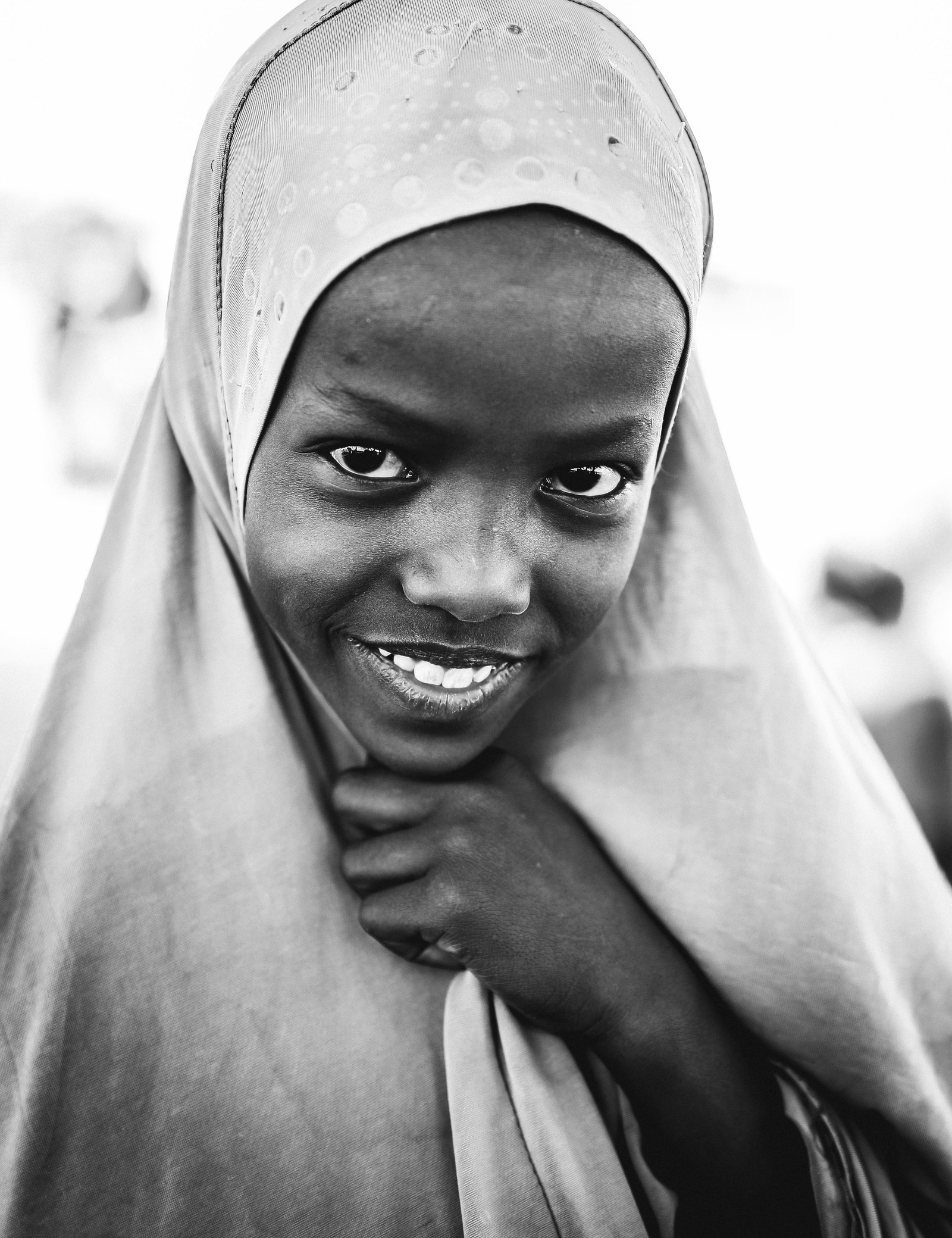
“One of the things we were doing, while we were there, is that we were teaching young women and young men how to use cell phones so they can document their own situations.
“She was very intuitive, very smart – like, learnt how to use the cell phone properly, how to log in.
“When I took her image and when I started speaking to her, she was very confident.
“And I think with a lot of the girls that were there I felt like they were very mature. You know, she just gave me a vibe where she was a little wise beyond her years.”
And in the photo below, Osman captured Awo and her baby brother.
Osman said: “Just having a conversation with her and her mother and her family, they really welcomed me and brought me into their house and as small as their house was – it was like this little hut that they lived in.
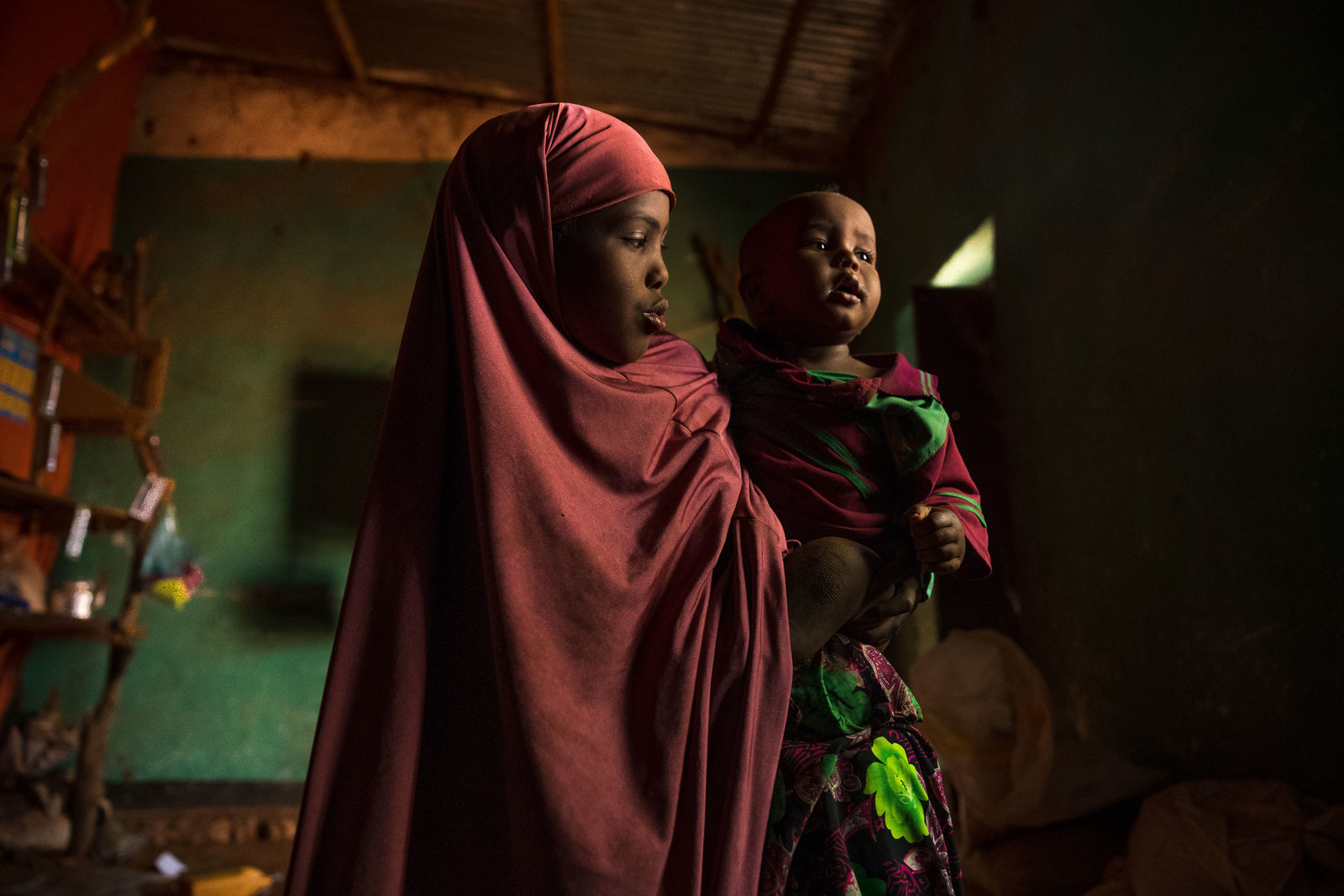
“They were just really welcoming and honest with me and allowed me to photograph them as she was taking care of the child, because in this type of situation and in this type of village that we were in, all these younger girls would have to take up responsibilities that they normally wouldn’t. It’s just that the parents need the support.
“They allowed me to be in their space and allowed me to take photographs as the mom was cooking, as the dad was reading Qur’an inside. The girl was just hanging out, playing with the kid.”
Osman said that he felt that despite what he had heard before going to Somalia, people were very welcoming there.
“There’s a lot of stories when young diaspora people go to Somalia – their language gets made fun of, people are not accepting of them. But when I went to this village people were, like, bringing me in, complimenting my Somali even though I knew it wasn’t good. People were hugging me and telling me, ‘It’s amazing that you’re coming here.’
“They even invited us into their homes and cooked for us, even though they literally did not have a lot. But they made us food, made us pasta.
“The only time I felt like an outsider was not in terms of how I looked, my presence, but in terms of mentality. Because the mentality that they had and the way their thought processes and the way that people think there is much different to the way that I think.”
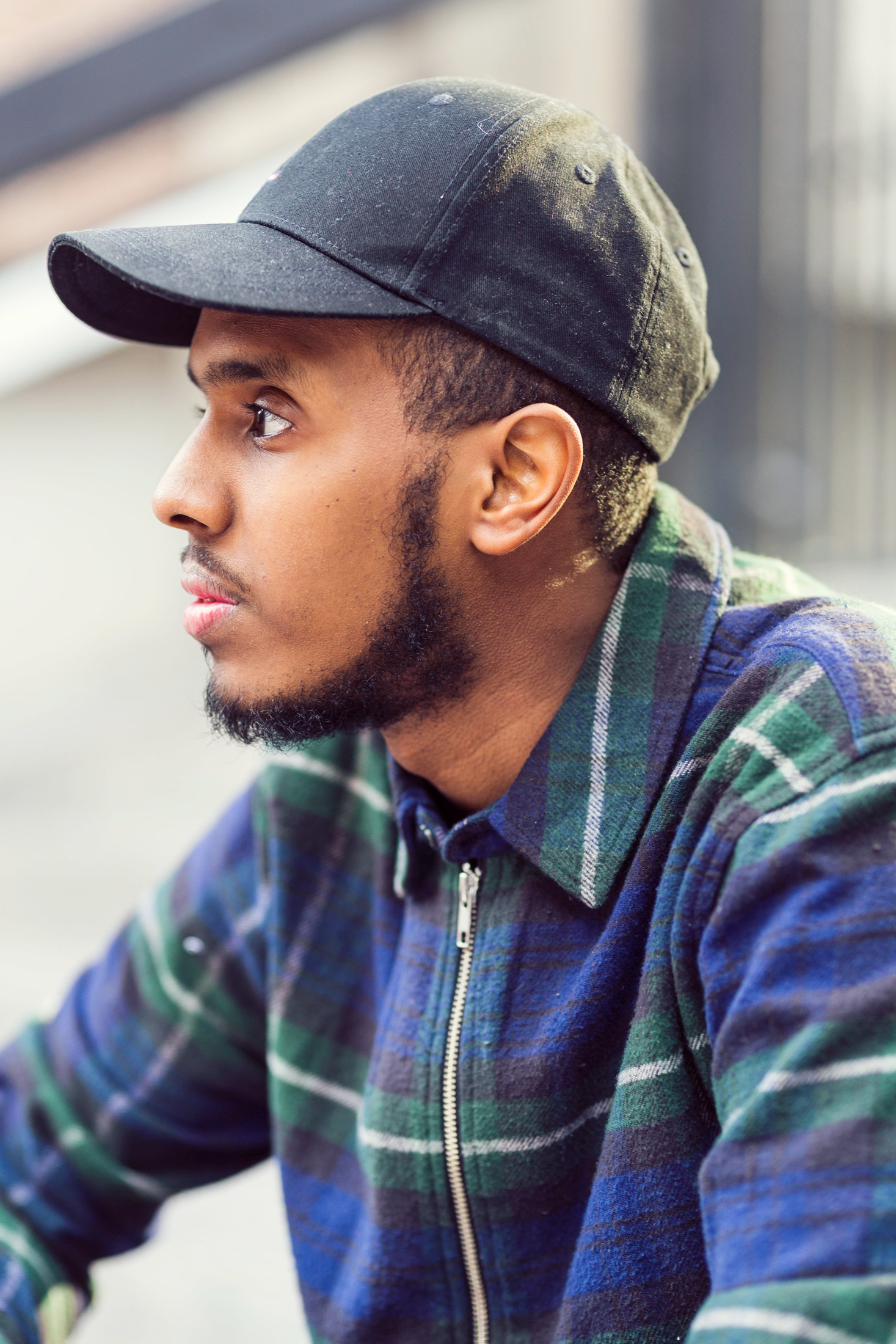
“There was a situation where there was a young boy named Amir: Jérôme was giving out candy to these kids and Amir grabbed a bunch and he was handing them out.
“I played a little devil’s advocate and I said, ‘Hey, why don’t you grab some more and keep some in your room or keep, like, in wherever and hide it or something and keep for yourself?’”
Amir refused. Osman said: “He’s like – what – 7 or 8 or something, and he said, ‘Why would I hide it if I don’t even know if tomorrow is coming?’ That’s the only time I felt like I was a little different in terms of how they think.
“I feel like they’re light years ahead of us.”
For the exhibition, Osman said he will be combining his photography with poetry and has asked Somali poets to submit poetry in any language, which you can find out about here.
Dear Ayeeyo will be on display at Daniels Spectrum, Toronto, from 4 May until 16 June.























